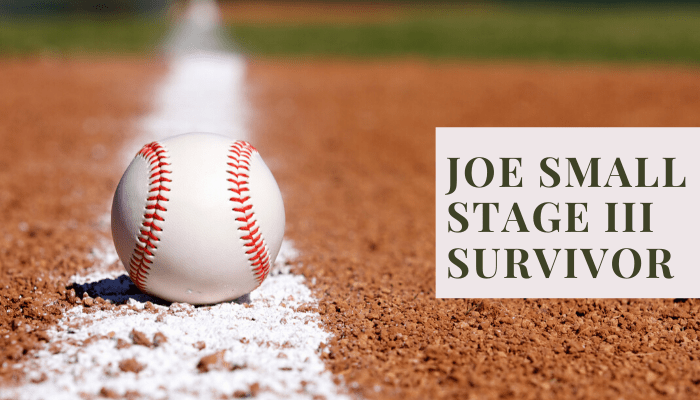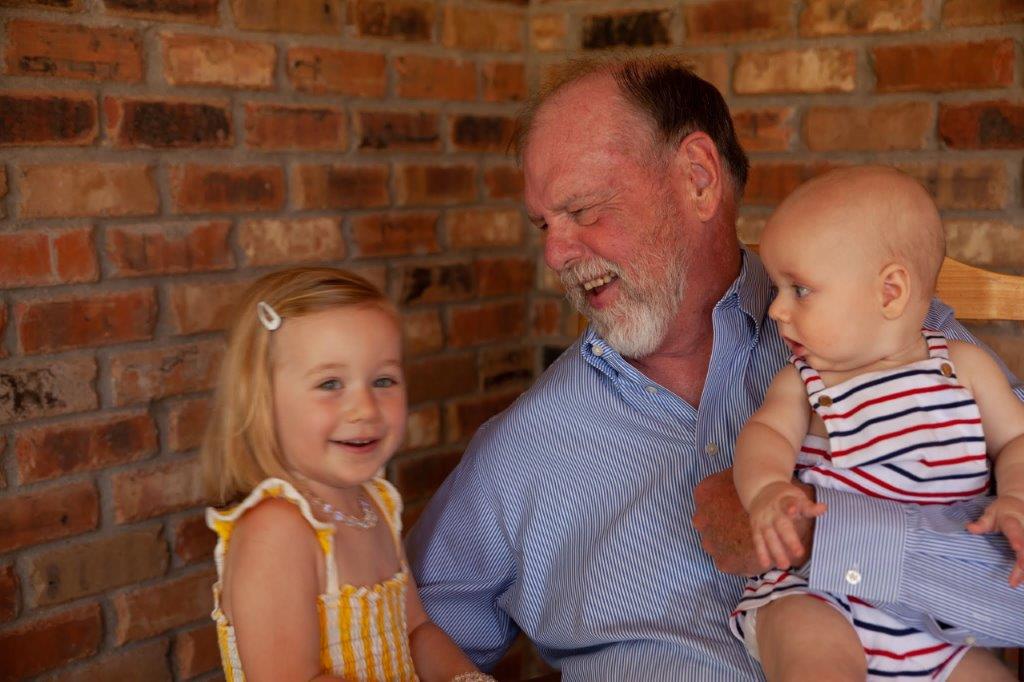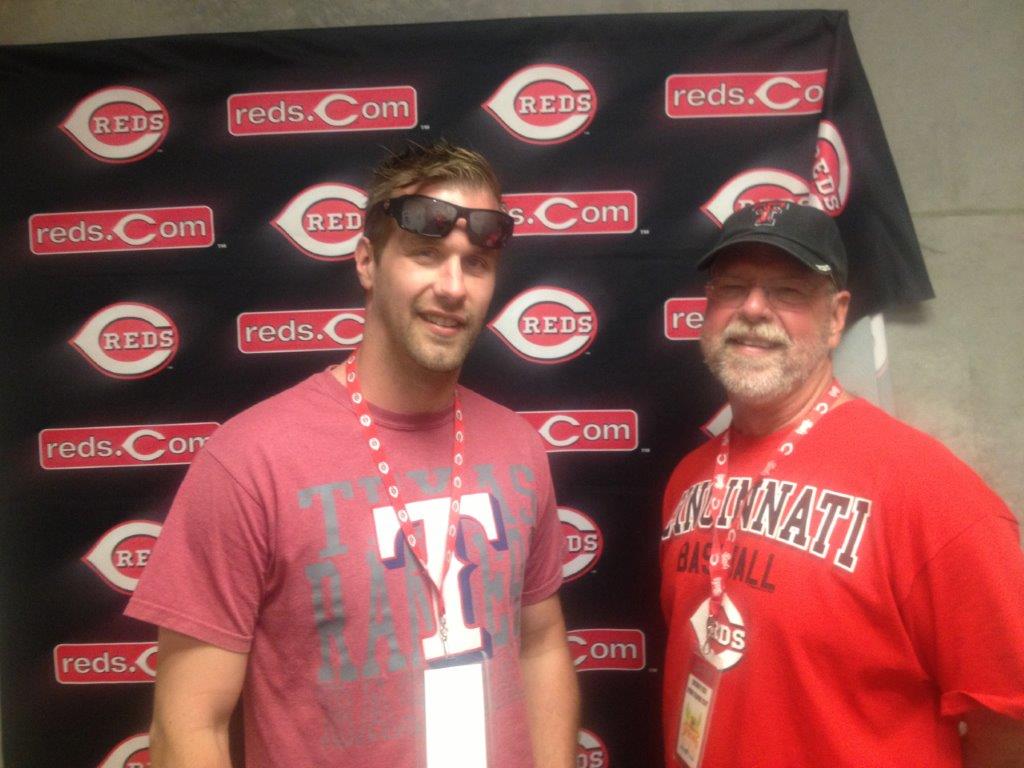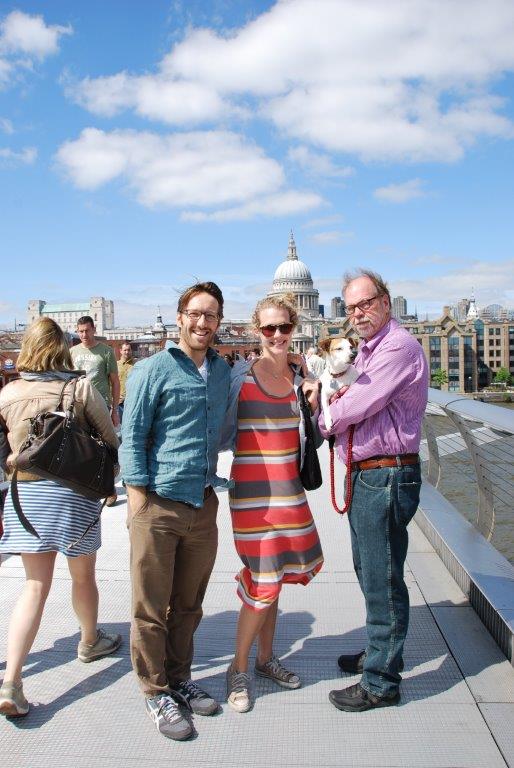Featured Survivor Story:
Joe Small: Stage III Survivor Spotlight

By, Alicia Rowell
It was 2016—October, specifically—when Joe Small showed a little spot on his right forearm to his doctor at his annual physical. His doctor biopsied it and sent it to a lab. After getting the results back, he called Joe to say it was melanoma.
“It was about the size of a pencil eraser,” says Joe, “or maybe half that.”

Joe with his grandchildren
He went to a dermatologist, who surgically removed the melanoma and got clear margins. It seemed very simple. Joe dutifully complied with the recommended dermatology follow-up visits every six months thereafter but notes that in retrospect he was not aware of how serious that little melanoma actually was. He saw the words “clear margins” and assumed he was in the clear. Life went on.
Fast forward to the beginning of this year, 2020, when he had a series of miserable infections and colds. He saw his general practitioner and got some antibiotics, but in April he still had symptoms. In addition, he now had pain in his right armpit and could feel a golf ball-sized lump there that he had never felt before and that was not present under his left arm.
He showed his doctor, who immediately scheduled him for a biopsy. The surgeon told him it could possibly be lymphoma. This doctor, however, did not know about Joe’s earlier experience with melanoma.
The telephone call with the results came on June 3rd. His surgeon was very grave: “It’s melanoma,” he said. Joe’s description of that call says it all: “It’s the day I got hit between the eyes with a 2×4.”
A West Texas Kid
Joe was born and raised in Lubbock, Texas, and his 91-year-old mother still lives in his childhood home. He was fair-haired and had light skin that was “always burning.” He played a lot of baseball. “It was a typical 50’s-60s childhood in West Texas,” he says.
For college, he stayed local and attended Texas Tech. From there he took his first job in the Dallas-Fort Worth area and has lived there since 1975. His two adult children are not far—one in Dallas and one in Austin.

Joe with his son at Spring Training
Joe’s a retired “landman,” the Texas oil and gas term for the person who works on leasing and contracts with landowners. He has been looking forward to traveling in his retirement, both around the world and the U.S. His daughter had lived in London for a time, and he’d visited her there; he’d like to go back. Italy has also called to him. Domestically, South Carolina, South Dakota, and Alaska are the only three states that he hasn’t visited, and he has been eager to set up those trips. Finally, as a baseball fan, he’s visited nearly every major league park, but there is always more baseball to see.
Joe has also been looking forward to working with wood, something that’s been a hobby but that he didn’t have much time for while he was working. His son works a lot with wood, and he liked the idea of both of them doing some projects. Finally, Joe is a duck hunter, and retirement promised more time to hunt.
Woodworking, travel, hunting, baseball—retirement was looking good.
But melanoma has a way of getting in the way.
A Complication
Joe’s been in the care of the UT Southwestern Medical Center, and Dr. Jade Homsi, since early June. He went through a full lymph node dissection on July 16th and received news a few days later that of the 37 total lymph nodes removed, one large and two very small and intertwined nodes were cancerous. The other 34 were negative for melanoma.
At that point, he was declared NED—no evidence of disease. And that felt great.
The proposed treatment was localized radiation followed by Opdivo (nivolumab). The plan seemed to be a good one, and Joe felt good about the process. But there’s been a complication: The drain attached to him post-lymph node dissection was supposed to be removed not long after the surgery in July. Unfortunately, the drain was removed just a few days ago—nine weeks later.
The drain complication forced the postponement of both the radiation and the adjuvant treatment: Neither could be started until the drain was removed. The drain complication also forced the postponement of the fun part of his retired life: Travel and baseball will have to wait. Hunting and woodworking, too, have been put off. He can do none of these things comfortably while undergoing treatment, let alone with a drain attached to him.
On the positive side, Joe has a great support network with his adult children nearby, and he feels he’s in very capable hands at UT Southwestern. So despite the drain complication, he’s in good spirits and ready to take on his treatment now that the drain is finally gone.
A Recommendation

Joe with his daughter and son-in-law in London
The day his world was turned upside down, he made a phone call to one of his partners whose nephew had died of melanoma. The news of the death was hard for Joe because it was another reminder of how lethal the disease can be. But his partner shared some positive information with Joe, too: that an organization called AIM at Melanoma had been a helpful source of information for their family. His partner recommended Joe turn to AIM.
Joe found the AIM website, the Ask a Medical Expert program, and AIM’s informational videos right away. He’s spent time on the phone with some of our staff and read several booklets for Stage III patients. He also agreed to tell his story for this month’s newsletter.
Both Joe and his partner’s family have been financially supportive of AIM, and it’s important to acknowledge the generosity of many people, including Joe and his partner’s family, that allows AIM to fulfill our mission to end this disease in our lifetime while improving the lives of those it affects. We’re so grateful for the support.
“AIM’s been a great resource and great benefit to me,” he says. Our response? That’s what we’re here for, Joe.
Recent Posts

Behavioral Addiction Responsible for Excessive Indoor Tanning

Announcing AIM at Melanoma’s Official Sunscreen Partner, WearSPF

Red Hair Genetics: 5 Things You May Not Know

Surviving & Thriving: From Melanoma Survivor to Sun Safety Advocate


